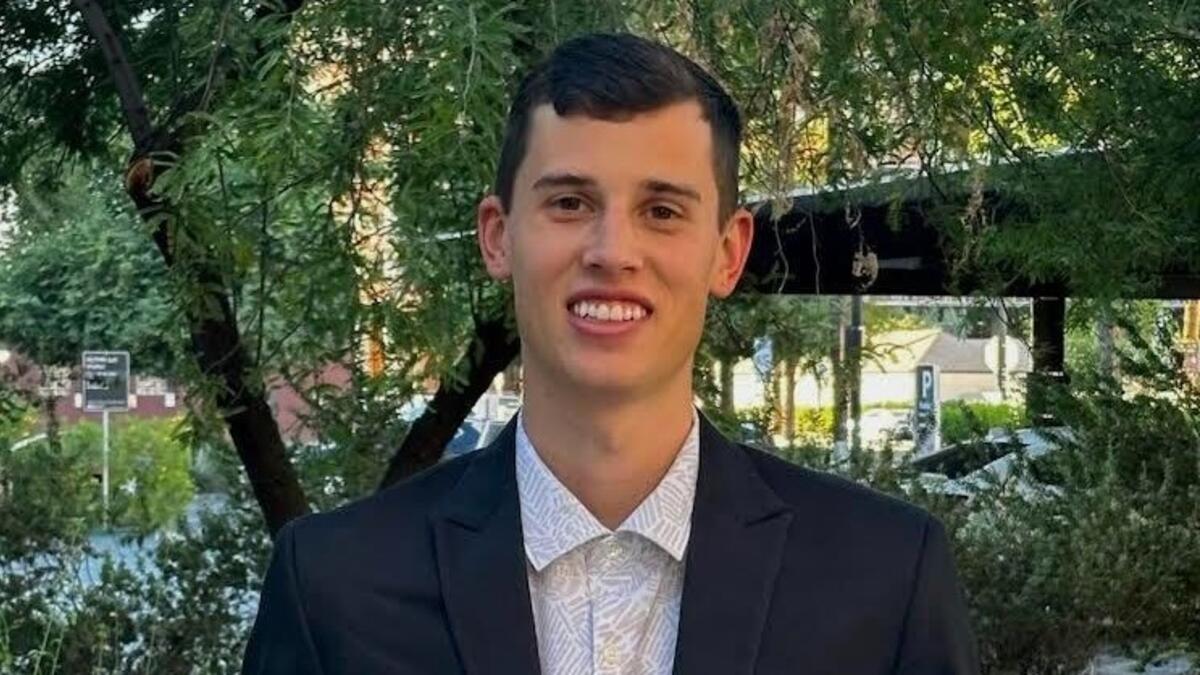College of Health Solutions grad found his passion in sports nutrition

Tanner Boro
Editor’s note: This story is part of a series of profiles of notable fall 2023 graduates.
Tanner Boro, who is graduating with a master’s degree in nutrition science, is using his thesis project to test a new electrolyte sports drink against other commercially available drinks.
“I used only 10 subjects for my thesis project,” said Boro. “So we kind of saw, with 10 subjects, what the results were looking like, but we're still finishing data collection to figure out officially which one is the best, and then we'll publish that.”
Boro earned his bachelor’s degree in exercise science at Northern Arizona University, and as an undergrad he sought to become a physical trainer, then an athletic trainer because of his interest in sports.
But he realized he found his passion after taking a sports nutrition class. He added a nutrition minor and spent most of his senior year just taking nutrition classes.
Here, he talks more about his experience earning his master's degree through ASU and the plans he has moving forward.
Question: Why did you choose ASU?
Answer: The master's was just the next step to becoming a sports dietitian in the future.
Q: What’s something you learned while at ASU — in the classroom or otherwise — that surprised you or changed your perspective?
A: During my data collection for my thesis project, we had a lot of different types of people that would come in and be participants, and it was long protocols with each participant. So I was there talking with them for probably 30 hours across all four of their trials. So just getting to talk to them and learning about different backgrounds and places they're from and cultures — I think that's probably the most eye-opening thing to me, just learning about different places and stuff like that.
Q: Which professor taught you the most important lesson while at ASU?
A: Dr. Stavros Kavouras — he was my mentor for my thesis project, and I also had him for a class of mine. He's just a very intelligent person in general, especially in the field of hydration. So he was just able to teach me a lot about research and introduced me to that, as well as teach me stuff about hydration and physiology.
Q: What’s the best piece of advice you’d give to those still in school?
A: Appreciate the opportunity you have every day to learn. I think coming towards the end of my formal classroom education period of my life, I've realized that being able to devote so much time every day and every week to just sitting there and learning is super valuable, and you shouldn't be taking it for granted.
Q: What was your favorite spot on campus, whether for studying, meeting friends or just thinking about life?
A: I'd probably say just the middle of the Arizona Center with the river and the little pond and the bridge and stuff like that. It was just kind of a nice little oasis to cut through going to classes. It was just nice to get out of the big city kind of feel and just walk through the water.
Q: What are your plans after graduation?
A: So I was just accepted to Wellness Workday's Dietetic Internship. And I will be doing my rotations in Austin, Texas. So I'll be doing a clinical rotation, and then I set up my other three rotations with University of Texas at Austin's athletics programs, and I hope to be working with their football team to just get field experience on nutrition.
Q: If someone gave you $40 million to solve one problem on our planet, what would you tackle?
A: I'd probably start by trying to increase access to clean water around the world. I think if you can tackle that problem and give communities access to healthy, clean water, a lot of public health issues would help resolve themselves.
Story by Aidan Hansen, communications assistant, College of Health Solutions
More Health and medicine

Reducing waste in medical settings
Health care saves lives, but at what cost? Current health care practices might be creating a large carbon footprint,…

ASU offers bilingual counseling to Spanish speakers
Arizona is one of the five states in the nation with the highest percentage of Hispanic residents, according to the U.S.…

College of Health Solutions launches first-of-its-kind diagnostics industry partnership to train the workforce of tomorrow
From 2007 to 2022, cytotechnology certification examinees diminished from 246 to 109 per year. With only 19 programs in the…

